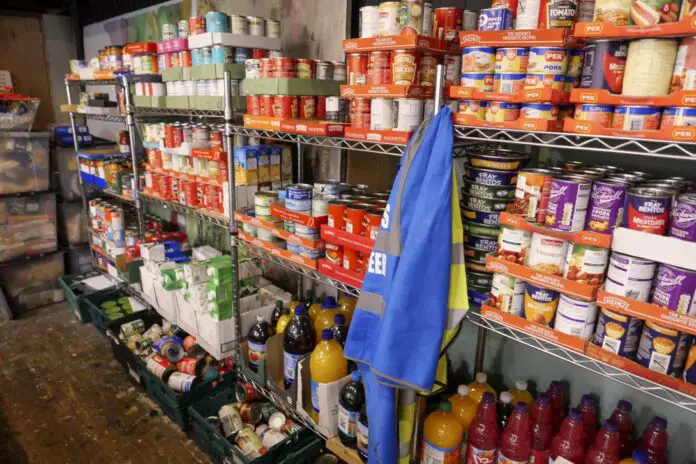8% of households (4.7 million adults) have experienced food insecurity in the past month.
Figures from the Food Foundation show that has increased from 7.3% in July 2021.
3.6% (1 million adults) reported that they or someone in their household has had to go a whole day without eating in the past month because they couldn’t afford or access food
This,says the report, clearly shows that soaring energy and food prices, along with the removal of the £20 uplift to Universal Credit are having a devastating impact on millions of people across the UK.
62% of households have experienced higher energy bills; and 16% of UK households have had to cut back on the quality or quantity of food to afford other essentials (e.g. energy bills).
Meanwhile 59% of households are worried that increased energy prices will mean they have less money to afford enough food for themselves/their family.
The British Retail Consortium have also warned that prices will continue to rise and at a faster rate than last year.
There is also a significant rise in the number of households with children experiencing food insecurity in the past month from 12.1% up from 11.0% in July 2021.
This represents a total of 2 million children who live in households that do not have access to a healthy and affordable diet which puts them at high risk of suffering from diet related diseases, poor child growth and shorter lives.
Parents are also more worried about feeding their children school lunches now than they were in August 2020. 4.9% of parents with children aged 8 to 16 in the household who are not registered for Free School Meals are worried their children will have to go without lunch some days because they cannot afford school meals/packed lunched compared with 1.1% in August 2020.
Anna Taylor, Executive Director of The Food Foundation said:
“The Levelling Up white paper commits to boosting productivity, pay and job security but does not commit to reducing food insecurity rates. Food insecurity is a vital measure if we are to monitor severe material deprivation. It contributes not only to health inequalities and life expectancy, but also social wellbeing.
If the Government wants to really get to grips with the issue, a comprehensive approach to levelling-up must tackle food insecurity head on.”







